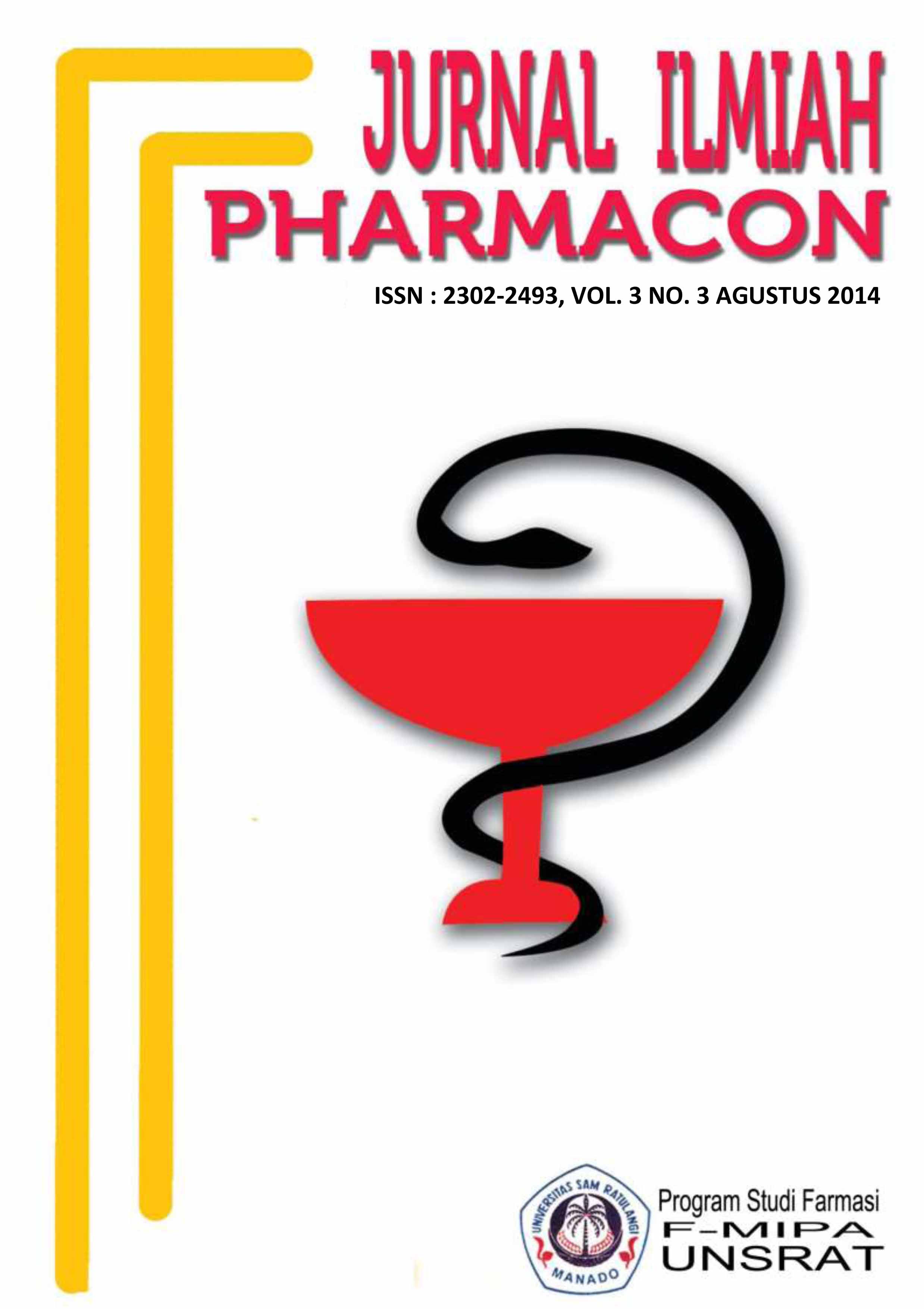AKTIVITAS ANTIOKSIDAN EKSTRAK KULIT BIJI BUAH PINANG YAKI (Areca Vestiaria Giseke) YANG DI EKSTRAKSI SECARA SOKLET
DOI:
https://doi.org/10.35799/pha.3.2014.5399Abstract
ABSTRACT
This study was conducted to determine the antioxidant activity of extracts of seed coat Yaki Pinang (Areca Vestiaria Giseke) were extracted in soxhlet using methanol, ethyl acetate and chloroform as well as antioxidant test method FRAP (Ferric Reducing Antioxidant Power) using UV-Vis spectrophotometer. The results showed Soxhlet method using methanol solvent have antioxidant activity of gallic acid equivalent to the value of the methanol extract of 59.33 EN ag/g, then the EN Chloroform 18.8 ag/g, ethyl acetate 46.26 EN ag/g,
Â
Key words : FRAP, Antioxidant, Areca Vestiaria Giseke, Spectrophotometer UV-Vis
Â
Â
Â
ABSTRAK
Penelitian ini dilakukan untuk mengetahui aktivitas antioksidan ekstrak kulit biji Pinang Yaki (Areca Vestiaria Giseke) yang diekstraksi secara soxhlet menggunakan pelarut metanol, etil asetat dan kloroform serta uji antioksidan metode FRAP (Ferric Reducing Antioxidant Power) menggunakan Spektrofotometer UV-Vis. Hasil penelitian menunjukkan metode soxhlet dengan menggunakan pelarut metanol memiliki aktivitas antioksidan dengan nilai equivalen asam galat ekstrak metanol sebesar 59,33 E N ag/g, kemudian pada Kloroform 18,8 E N ag/g, etil asetat 46,26 E N ag/g,
Â
Kata kunci : FRAP, Antioksidan, Areca Vestiaria Giseke dan Spektrofotometer UV-Vis
Â
Â
Â
Â
Downloads
How to Cite
Issue
Section
License
Authors who publish with this journal agree to the following terms:
- Authors retain copyright and grant the journal right of first publication with the work simultaneously licensed under a Creative Commons Attribution-NonCommercial 4.0 International License that allows others to share the work with an acknowledgement of the work's authorship and initial publication in this journal.
- Authors are permitted and encouraged to post their work online (e.g., in institutional repositories or on their website) prior to and during the submission process, as it can lead to productive exchanges, as well as earlier and greater citation of published work (See The Effect of Open Access)










